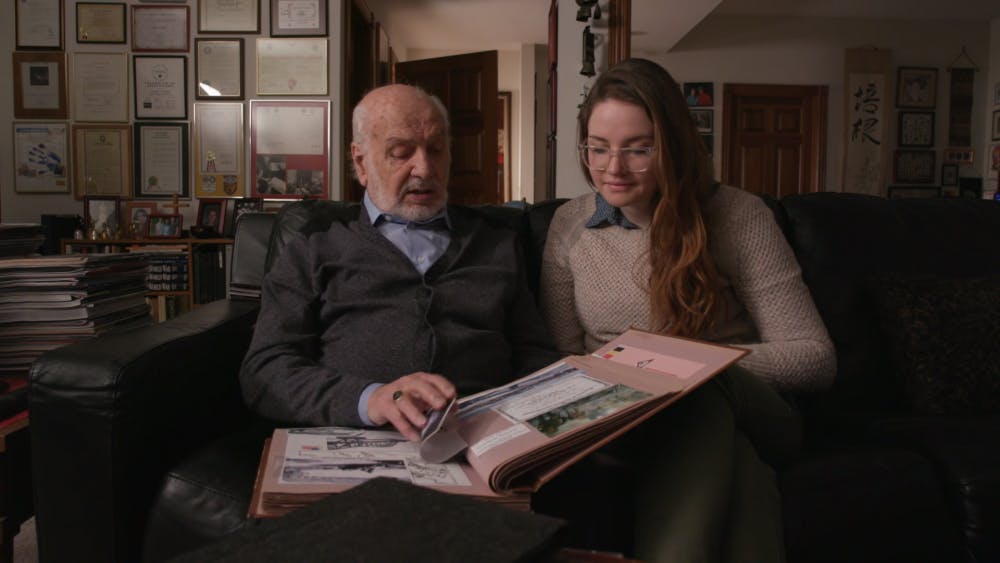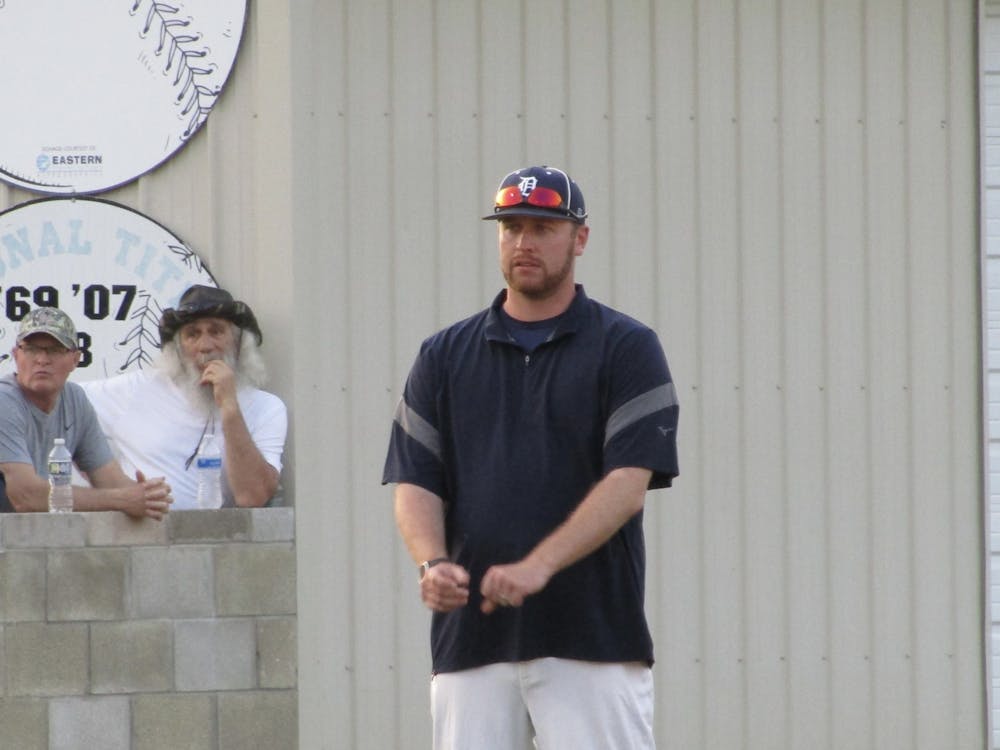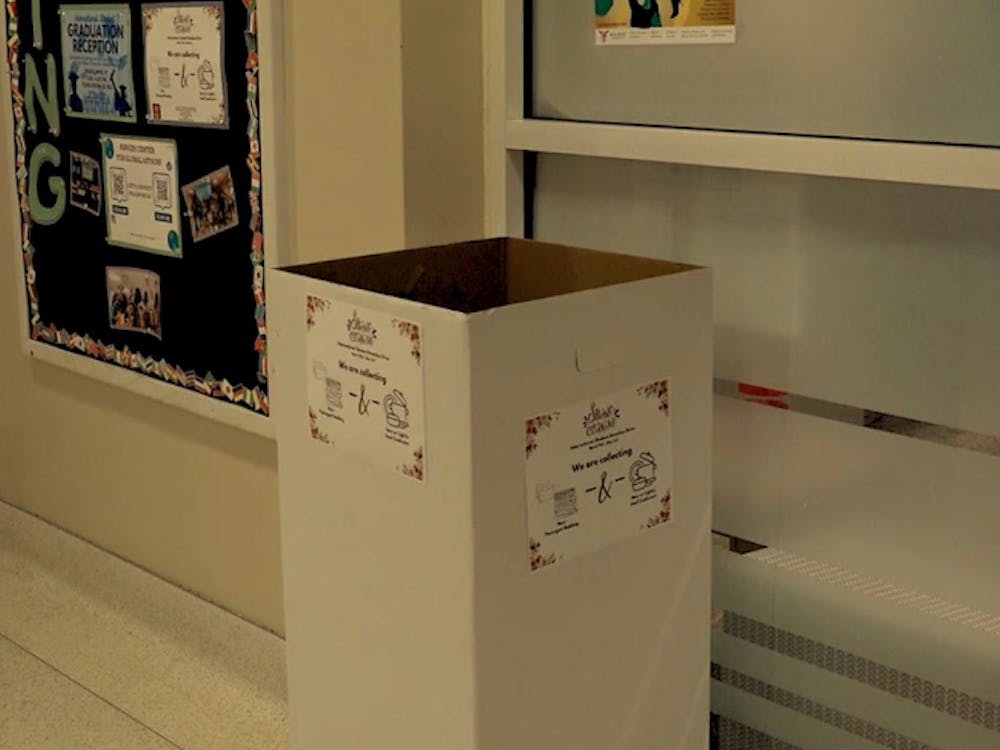Fort Wayne resident Gabriel DeLobbe was just 18 years old when he sabotaged his first Nazi supply train in the summer of 1944.
DeLobbe, a Belgium native, is the subject of “Saboteur,” a new documentary directed by Ball State teacher Chris Flook and 2017 telecommunications graduate Nicole Lehrman, DeLobbe’s granddaughter.
The documentary began as a story DeLobbe told during family gatherings.
“I told the story to Chris Flook, and he thought the story was so interesting. I initially just wanted to record [DeLobbe] just straight telling the story to put in an archive somewhere, but [Flook] thought that it had a lot more life to it,” Lehrman said.
The film tells the story of DeLobbe’s efforts as a saboteur with the Belgian Secret Army and eventual regularization into the First Army as a Belgian Unit.
DeLobbe’s group in the Secret Army fought back against the Nazis by sabotaging, including discreetly destroying vital supply lines, using tricks like removing track screws to derail shipments or adding sugar to gas tanks of trucks to cause malfunctions or explosions.
During his time as a saboteur and member of the First Army, DeLobbe witnessed several landmark events in World War II,such as the Battle of the Bulge, the capture of the Ludendorff Bridge on the German border and the liberation of the Buchenwald concentration camp.
DeLobbe even met U.S. Army Gen. George S. Patton.
“I had a German gun that I took from an officer,” DeLobbe said in the documentary. “That was not legal. I was just a soldier, and a soldier cannot wear a handgun. [Patton] looked at my gun and he said, ‘Nice gun.’ I looked at his and said ‘Nice gun. You want to change?’”
DeLobbe captured many of his experiences in the war with several photographs, including the destruction of the Ludendorff Bridge, which are featured in the documentary.
Production on “Saboteur” took about two years to complete, with a minimal budget and a production team of eight credited editors and filmmakers. The film was produced independent of the Department of Telecommunications as a passion project of Flook and Lehrman.
“The filming [process] was actually not that much,” Flook said. “We interviewed him one afternoon, and then we went back about six months later, and that was when we scanned all the photos, but most of it was all post [production].”
The two year production time was largely due to scheduling conflicts and academic or professional commitments, Flook said. The editing process was completed in three-to-four-hour chunks by Flook and editor Micah Holtgraves.
The film premiered two months ago on Vimeo and as a Veterans Day special on WPIB-TV Nov. 8. Flook said he and his team were pleased with audience reactions to their film, and has since entered “Saboteur” in several film competitions.
“The [audience members] that have responded have been very positive,” Flook said. “The whole idea was just to tell his story and to have it be there, fixed so that people can know what life was like behind enemy lines in Nazi-occupied Europe.”
Contact John Lynch with comments at jplynch@bsu.edu.





